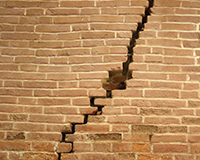Nick Isaac and Andrew Smith discuss a recent ruling that is good news for surveyors seeking to enforce payment of fees incurred in making an award
The ruling in R (on the application of Farrs Lane Developments Ltd) v Bristol Magistrates’ Court, decided on 9 February this year by Holgate J, is likely to be welcomed by surveyors, primarily because it is now more straightforward to enforce directly the payment of fees awarded to them under an award made under the Party Wall etc Act 1996 (“the Act”).
It has long been accepted (at least since Selby v Whitbread & Co [1917] 1 KB 736) that the Act and its predecessors dealt with the common law in a revolutionary manner and, in effect, amounted to an exhaustive code, implicitly repealing the common law and suspending the parties’ common law rights in relation to works which engage the Act.
The surveyors’ power to make awards under the Act is nevertheless susceptible to judicial scrutiny: any owner can appeal an award to the county court, provided that the appeal is brought within 14 days of service; and the court has untrammelled power to rescind or to modify the award as it sees fit (section 10(17)).
Party wall awards almost invariably make provision for payment of the surveyors’ costs incurred in making the award. Usually, but not always, the award will specify that the building owner will be responsible for the adjoining owner’s surveyor’s fees, and will specify what those fees should be.
Enforcing payment
Section 17 of the Act provides that any sum payable in pursuance of the Act shall be recoverable summarily as a civil debt, meaning that payment of such sums can be enforced by a civil complaint to a magistrates’ court. This course of action is clearly open to an owner who has the benefit of an award, but there had been some doubt as to whether a surveyor (as distinct from an owner) could similarly enforce the terms of an award where the award makes provision for payment of his fees.
However, in Farrs Lane Holgate J concluded that a party wall surveyor is indeed entitled directly to enforce payment of his fees under an award.
In short (and simplifying the facts) the case involved a development in Bristol where a series of similar awards were made, which all provided that the building owner should pay the building owner’s surveyor’s fees. The building owner did not do so, believing the fees were excessive, but it did not appeal the award. Subsequently, the surveyor brought a complaint before the Bristol magistrates seeking to enforce payment to him of those fees. The building owner argued that the surveyor was not entitled to do so because: (i) he was not a party to the award; and (ii) the question of his fees was not a matter in issue between the owners. However, the magistrates rejected those arguments and the application was granted. The building owner challenged that decision in the High Court.
The judge gave short shrift to both of the building owner’s objections. He held that, while the surveyors must of course settle any matters which are in dispute between the owners, they are also entitled to “determine” any other matters which are incidental to the dispute. The surveyors’ power to make a determination in respect of those other matters is very broad in scope, reflecting the surveyors’ task of providing a complete package of provisions, some of which may relate to disputed matters and others of which may not. This appears to be consistent with the surveyors’ obligation to make an award under section 10(1) in respect of matters which are in dispute between the owners and their discretion under section 10(12) to determine any other matter incidental to the dispute, including the costs of making the award.
The judge had no difficulty in finding that the surveyor making the award could enforce its provisions even though he is not a party to the award; he took the view that, where an award requires that an owner shall pay a surveyor’s fees directly to that surveyor, there is no reason why the surveyor should be precluded from invoking section 17. If a sum payable under an award is “recoverable summarily as a civil debt” it must be recoverable by the person entitled to receive it.
Direct action
The judgment will be welcomed by party wall surveyors who can now be confident that their jurisdiction is indeed as wide-ranging as it needs to be to enable them to adjudicate on all aspects of works within the Act, without having to distinguish between those aspects which are formally “in dispute” and those which, while not being in dispute, nevertheless require determination in order to achieve a complete package of provisions. Moreover, they can now be confident that they can directly enforce their own right to receive payment of their fees by taking direct action in their own name.
However, there were aspects of the decision which were clearly intended to ensure the courts can still exercise control over party wall surveyors who utilise the Act for their own benefit, rather than for its proper purposes. The judge made it clear that he considered, contrary to the previously and generally accepted position, that, in appropriate cases, the party wall surveyor(s) making an award could be made parties to an appeal brought under section 10(17), whether for the purposes of ensuring they are bound by that decision themselves (ie primarily where fees are to be cut down by the appeal) or, more worryingly for surveyors, for making costs orders against surveyors whose inappropriate award has caused the appeal to be necessary in the first place.
Nick Isaac is a barrister at Tanfield Chambers and Andrew Smith is a solicitor at Child & Child LLP








